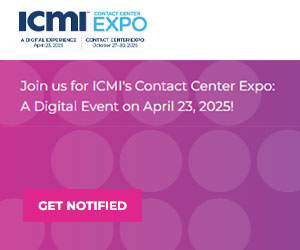Security vs Service: Do You Have to Choose?
When you’re running a contact centre, it can be a challenge to balance customer service and security while still handling calls effectively and efficiently.
When it comes to taking payments over the phone, you need to be particularly careful. For example, you know that IVRs are secure, but they can also be a significant cause of frustration. A miskeyed number, for example, can be difficult to correct by a customer using an automated system. With nobody on the end of the line to provide support, they are far more likely to simply end the call, leaving you with a lost sale and possibly a lost customer.
Slips of the Tongue
If you’re asking your customers to read their payment card numbers out loud, you are not only putting their security at risk and making PCI DSS compliance more complex, but you are almost certainly adding to your average handling time (AHT). Human error can creep in at several stages during the process:
- The customer may misread the numbers – Payment card digits are notoriously easy to confuse.
- The agent may mishear the numbers – The UK possesses a very wide range of regional accents.
- The agent may miskey the numbers
What’s more, if errors like these result in a payment being rejected by the Payment Service Provider (PSP), you may also face a financial penalty.
Semafone – the Best of Both Worlds
You can provide a friendlier and more efficient level of service. Semafone lets customers type in their own card numbers securely so your agents can talk to them throughout the process, establishing a relationship and addressing any payment issues as they arise.
It’s also faster this way. Using Semafone’s patented payment method, our customers have reported that they have achieved AHT reductions ranging from 7 to 30 seconds. In fact, most customers have stated zero increases in AHT.
So How Does Semafone Decrease AHT?
Semafone’s patented payment method reduces AHT by:
- Providing a single point of numerical entry, which means the opportunities for error are significantly reduced. Thanks to this, information doesn’t need to be recaptured or corrected by the agent.
- Removing the need for agents to read back or check the card details to the caller.
- Automatically carrying out early BIN and Luhn checks during the call, which ensures the payment only has to be processed once.
- Freeing agents to carry out wrap-up activities during the call while customers type in their card numbers.
The Added Benefits
Our customers have also reported the following improvements:
- Fewer errors – One customer reported that 91% of transactions required no re-entry of credit card or security code information
- Fewer failed transactions – Avoiding failed transactions also avoids the costs charged by PSPs
- Happier customers – They prefer to type in their own details – Peace of mind – they recognise you’re protecting their data
- Brand Protection – Payment card data isn’t stored on call recordings or your IT systems
– Your brand and reputation is better protected against data breach
- Happier agents – Fewer security restrictions
- Reduced costs – A shorter AHT means that you can handle more calls with the same number of staff
Why Wait?
When your customers pay for their purchases over the phone, they need the process to be secure, convenient and simple. The more time you waste asking them to read numbers aloud and to wait while an agent types them in, or by transferring them to a machine mid-call, the more likely you are to lose them.
With Semafone & Olive you can increase your productivity and efficiency, reduce your costs and maximise profitability.
Author: Rachael Trickey
Published On: 1st Sep 2017 - Last modified: 17th Sep 2020
Read more about - Guest Blogs, Olive



































